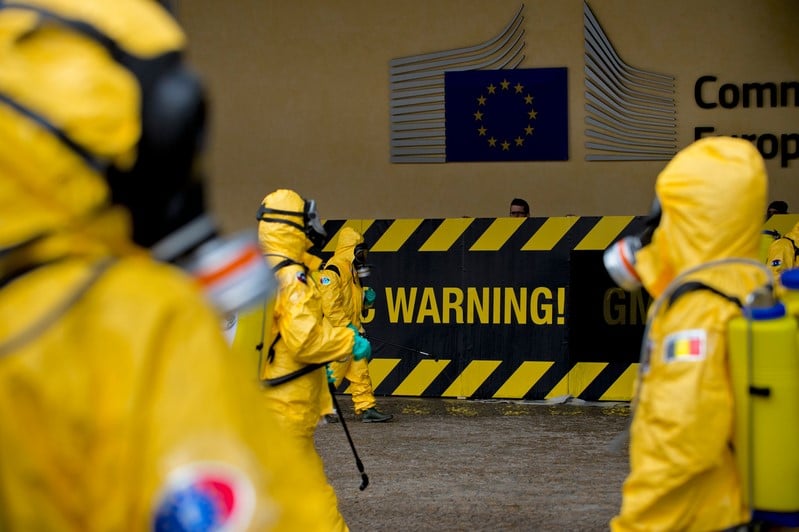The European Chemicals Agency (ECHA) is due to publish a safety assessment of glyphosate, a controversial weedkiller linked to cancer by the WHO. Twenty health and environmental organisations expressed concerns regarding conflicts of interest and transparency at the agency. The executive director’s response fails to address these concerns.
This page was updated on 14 March to include a second letter from ECHA to Greenpeace dated 10 March.
According to ECHA’s own standards, the chairman and two members of the Risk Assessment Committee appear to breach the agency’s own conflict of interest rules. NGOs also criticise ECHA’s practice of basing assessments on unpublished industry studies.
The executive director of the European Chemicals Agency, Mr. Geert Dancet, responded to our letter, but concerns remain that:
- ECHA explains how it manages specific conflicts of interest, but fails to address concerns about conflicts of interest that can affect ECHA’s overall work.
- Allowing experts to move freely between the private sector and public authorities, even if employment periods do not overlap, is the definition of revolving doors.
- Conflicts of interest related to industry consultancy cannot simply be declared. They must be ruled out.
- If an expert opinion in relation to regulatory processes can be omitted from the declaration of interests, the requirement to disclose such interests may as well be scrapped. These rules only make sense if they are enforced.
- Dependence on unpublished scientific evidence provided by industry calls into question the independence of scientific assessments conducted by European agencies.
ECHA’s Risk Assessment Committee met on 8 March and will meet again on 15 March to discuss the health and environmental impacts caused by the use of glyphosate.
NGO letter to ECHA (6 March)
ECHA’s response (7 March)
Letter expressing Greenpeace’s heightened concerns (8 March)
Second ECHA letter (10 March)

